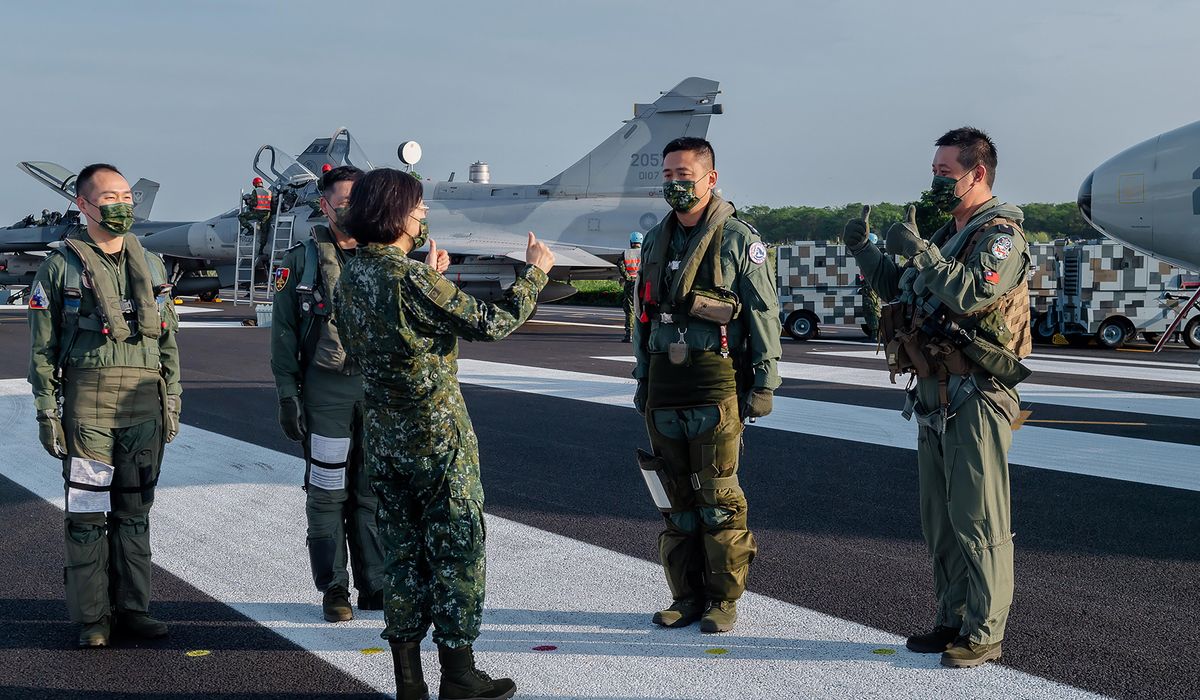

Former Trump National Security Advisor and retired Army Gen. H.R. McMaster on Monday warned that the U.S. and its allies are entering a “very dangerous time” in their relations with China.
His remarks come amid the Peoples Republic of China’s significant escalation in provocation on Monday flying its largest sortie to date of 58 warplanes inside Taiwan’s air defense zone.
Monday’s flight, which included 12 nuclear-capable bombers, follows similar flights Friday and Saturday, bringing the total of aircraft within Taiwanese airspace to 136 since last week.
Mr. McMaster said that while the flights align with China’s longstanding campaign of coercion against Taiwan, he would not rule out the potential that the flights could signal a buildup toward a more aggressive campaign.
“I wouldn’t discount it,” Mr. McMaster told reporters at a roundtable hosted by the Hudson Institute. “I think that it’s really important for the United States, for Japan, the free world, the European Union to make clear to China that this kind of aggression is unacceptable.”
He said Chinese President Xi Jinping has recently become emboldened after suffering few consequences internationally over his aggressive clampdown in Hong Kong.
He also said China’s actions are in line with other adversaries who have escalated tensions following the U.S. withdrawal from Afghanistan, which Mr. McMaster said called into question U.S. deterrence capability globally “based on a perception of lack of will.”
“Who knows what the [communist] party will do beyond these menacing acts the People’s Liberation Army Air Force has taken in recent days?” Mr. McMaster said. “But I think that we’re in a race — we being Taiwan and the United States but also Japan, and the development of its capabilities, and others in the region including our allies, Australia and so forth — to ensure deterrence by denial, to convince the Chinese Communist Party leadership and the People’s Liberation Army that they can’t accomplish their objectives through the use of force or coercion vis a vis Taiwan.”
Mr. McMaster said he is encouraged by the Biden administration’s initiatives to shore up supply chains in the region and maintain economic pressure on China. He also praised President Biden’s recently announced alliance with the U.K and Australia in countering Chinese aggression.
But he said the U.S. and its allies remain in a race against China, which continues to invest heavily in its military. He said he expects China to continue to ramp its provocations in the region, especially in the coming year following the Beijing Olympics and the 2022 Chinese Communist Party Congress, in which some predict Mr. Xi will continue as chairman for an unprecedented third term.
“So I think it is a very dangerous time,” he said. “I think it is probably not the most dangerous time yet. I do think that 2022, as many people have pointed out, is a critical period.”
